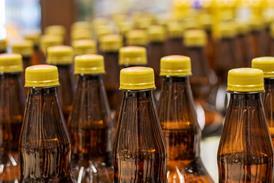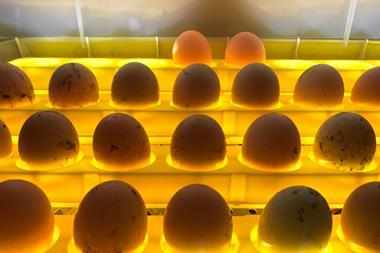
Three-letter terms denoting various government green schemes bring four-letter words to the tip of my tongue.
And who can blame me, when Scotland’s failed deposit return scheme (DRS) came close to causing chaos for the industry? And we’re still sweating about the unknown costs of the UK government’s extended producer responsibility (EPR)? Green schemes have been notoriously mishandled in this country, to the detriment of businesses.
I am a huge advocate of the country cleaning up its act – and in fact, many businesses are going above and beyond to do exactly that. So, could the new DRS be the solution? I’m doubtful.
A history of failure
It’s not like government – of any flavour – has a great track record of delivering green schemes. The DRS planned in Scotland failed spectacularly. The Scottish government now faces a lawsuit for £160m over said failure.
South of the border, the EPR scheme hasn’t failed, but is quietly causing businesses to worry over poor communication of the scheme’s finer detail. Put very, very simply, it will require companies who import packaging (like spirits companies) to report on these imports and foot part of the bill associated with the management of that packaging once it becomes waste.
I have a few issues with it, and these issues are breeding nothing but doubt and distrust amongst businesses as they see another raft of penalties thrown at them.
First of all, we have the fact that costs and fines associated with EPR haven’t yet been revealed – and the scheme was enacted in April this year. I’m trying to run a business, and I simply don’t know what costs I’m already incurring. These haven’t been communicated, along with a lot of the detail of the scheme.
Next up, we have the lack of consultation with the industry. It seems to me like the government is so desperate to act and get something new out the door, they’re failing to consider the effect on businesses. But then what’s new?
Finally, there’s the question of infrastructure. From council to council, we don’t quite know how our waste is treated. When I moved house, I only moved two streets away but into another local authority. I went from seven bins to two. With no consistent process for waste across the country, how can we possibly calculate and allocate waste in an accurate way? How do we then implement and police EPR effectively?
It might be the right idea, but without the right execution, we’re pole-vaulting before we can even walk.

The ‘new’ DRS
I’m glad to see chiefs of industry are taking the helm of the ‘new’ DRS.
Known as the UK Deposit Management Organisation (another catchy three-letter abbreviation; the DMO for short) this non-profit will be led by people from Coco-Cola, Heineken UK, Lidl, Tesco, and Co-op. It’s vital that experience from businesses is poured into the implementation, and for that reason maybe it will be more successful.
After Wales recently bowed out, the scheme is set to run across England, Scotland, and Northern Ireland. An important point because the varied bureaucracy across the home nations carries exorbitant cost and effort for distributors like Mangrove.
The UK is an important market, but it is relatively small. Extra levels of bureaucracy to trade in different parts of the UK could put off independent brands, leaving a smaller selection of conglomerates to mop up. Less choice, and a far less exciting booze shelf in a world where consumers want bigger selections.
Other technologies
Another option for cleaning up spirits would be to look at and invest in technologies that already exist. The spirits industry runs on innovation and creativity, and so many producers have been working hard to build environmental and ethical credibility into the bones of their businesses.
There’s Verallia’s lightweight glass bottle range, which uses a high proportion of recycled glass, plus energy-conscious production processes. It even includes designs that stack together so they don’t need material dividers when placed on a pallet – meaning an extra 200 bottles can be placed in one pallet alone.
You’ve got producers like Avallen using Frugalpac’s ‘paper’ bottle; Sustainaholics creating lower-carbon aluminium miniatures for the travel industry, for a range of brands; and Penrhos using recycled aluminum bottles.
You’ve also got closed-loop technology for the on-trade, like EcoSpirits. This game-changing technology is already in use here in the UK and across the globe, and nearly eliminates all packaging waste in the supply chain. High-volume levels of spirits are delivered to hospitality venues in reusable ‘EcoTotes’, which are then collected and refilled locally, before being redelivered to venues. Could this application also work for consumers? Perhaps, but that leads me nicely on to my final point.
We’re putting so much on businesses – whether it’s hospitality venues, retailers, or producers themselves – and missing out on one key piece of the puzzle: consumers. No DRS is going to work to its fullest effect without the support of consumers. That is where the tide can really be turned: by driving behaviour change and getting consumers to truly care about waste. It’s about education.
But as it stands, there is a cost associated with being environmentally responsible. Until it costs nothing to do better, you won’t see a major shift in the general public. We need a carrot and stick approach – but right now, we’re just beating businesses with the stick.
Nick Gillett, Mangrove MD



















No comments yet